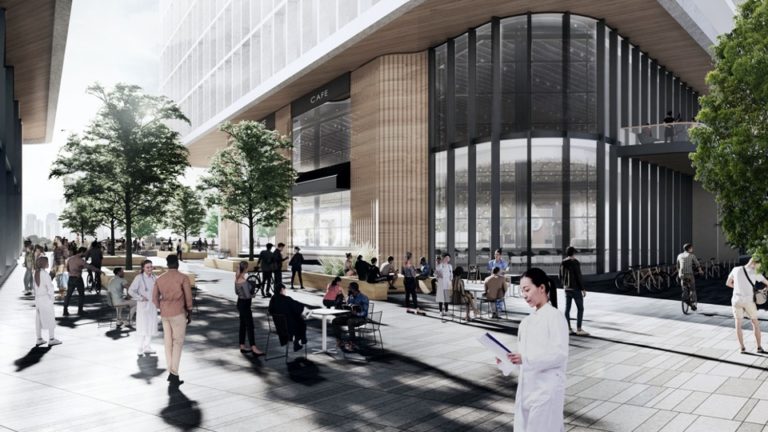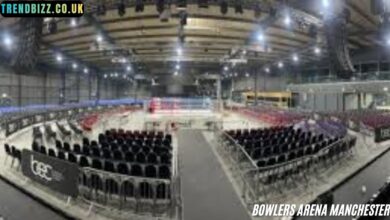Navigating Success: The Dynamics of UBC Commercial Real Estate

The landscape of commercial real estate is a dynamic tapestry, and within it, the University of British Columbia (UBC) stands as a prominent hub for diverse and thriving commercial activities.
This article explores the unique dynamics of UBC’s commercial real estate sector, shedding light on its significance, investment potential, and the factors that contribute to its distinctive character.
The Heartbeat of Innovation: UBC as a Commercial Hub
Situated on the unceded territories of the Musqueam, Squamish, and Tsleil-Waututh Nations, UBC is renowned not only for its academic excellence but also as a vibrant center for innovation and economic activity.
UBC commercial real estate landscape reflects a harmonious blend of academic, research, and business pursuits, creating a unique ecosystem that fosters growth and collaboration.
1. Research Clusters and Innovation:
UBC’s commitment to research excellence has led to the development of specialized research clusters.
These clusters, focused on areas such as technology, life sciences, and sustainability, attract commercial enterprises seeking proximity to cutting-edge research and talent.
The convergence of academia and industry within these clusters fosters an environment of innovation and collaboration.
2. Technology and Start-up Incubators:
UBC’s Research Park and the various innovation precincts act as incubators for technology and start-up companies.
These spaces provide an ideal environment for emerging businesses to flourish, benefiting from the proximity to academic resources, mentorship, and a network of like-minded entrepreneurs.
3. Sustainable Development Initiatives:
UBC places a strong emphasis on sustainable development, reflecting in its commercial real estate initiatives.
The commitment to green building practices, energy efficiency, and environmentally conscious design contributes to a sustainable and future-oriented commercial landscape.
4. Mixed-Use Spaces:
The integration of commercial spaces with residential, recreational, and educational facilities creates a mixed-use environment.
This design philosophy not only enhances the quality of life for residents and workers but also fosters a sense of community and connectivity.
Investment Potential and Opportunities
1. Stability and Resilience:
The stability of UBC’s commercial real estate market is reinforced by its association with a world-renowned academic institution.
The resilience of the education sector and the continuous influx of students contribute to a steady demand for commercial spaces.
2. Innovation Economy:
UBC’s focus on innovation and research positions its commercial real estate as an attractive investment for businesses looking to be at the forefront of technological and scientific advancements. The innovation-driven economy ensures a sustained demand for commercial properties.
3. Start-up and Tech Growth:
The presence of start-up incubators and collaboration spaces at UBC attracts a growing number of technology companies.
Investors looking to tap into the flourishing tech sector recognize the potential for high returns in commercial real estate ventures.
4. Long-Term Appreciation:
UBC’s strategic planning, commitment to sustainable development, and continuous growth contribute to the long-term appreciation of commercial real estate assets. Investors often view UBC as a strategic location for enduring value and potential capital gains.
Distinctive Features of UBC’s Commercial Real Estate
1. Academic Integration:
UBC’s commercial real estate is uniquely intertwined with academic institutions. This integration provides businesses with access to research, talent, and a supportive ecosystem that goes beyond the traditional commercial setting.
2. Community Engagement:
The design philosophy of UBC’s commercial spaces emphasizes community engagement. Commercial areas are often integrated with public spaces, creating environments that encourage social interaction, collaboration, and a sense of belonging.
3. Cultural and Recreational Amenities:
UBC’s commercial real estate is enriched by the presence of cultural and recreational amenities.
The availability of theaters, galleries, sports facilities, and green spaces enhances the overall appeal of commercial areas, attracting diverse businesses and clientele.
4. Adaptability to Changing Trends:
UBC’s commercial spaces exhibit a remarkable adaptability to changing trends. Whether in response to advancements in technology, shifts in consumer behavior, or evolving business models, the commercial real estate at UBC remains dynamic and responsive.
Challenges and Considerations
While UBC’s commercial real estate offers promising opportunities, it is essential to acknowledge the challenges and considerations inherent in this dynamic landscape.
1. Regulatory Environment:
Navigating the regulatory environment, which includes zoning regulations and development guidelines, requires a nuanced understanding of UBC’s unique governance structure.
Investors must work closely with local authorities to ensure compliance and successful project execution.
2. Market Sensitivity:
UBC’s commercial real estate is influenced by market trends, economic fluctuations, and global events. Investors should conduct thorough market analyses and risk assessments to make informed decisions in a rapidly changing economic landscape.
3. Competition for Space:
The desirability of UBC’s commercial spaces has led to increased competition among businesses vying for prime locations. Investors and entrepreneurs need to be strategic in securing spaces that align with their business goals.
4. Balancing Innovation and Tradition:
Maintaining a balance between fostering innovation and preserving the historic and cultural aspects of UBC poses a unique challenge. Developers and investors must navigate this delicate equilibrium to contribute positively to the evolving character of UBC’s commercial real estate.
Conclusion
In conclusion, UBC’s commercial real estate stands as a nexus of innovation, economic activity, and academic prowess.
The distinctive features of this landscape, from its integration with research clusters to its emphasis on sustainability and community engagement, make it a compelling arena for investors, businesses, and the academic community alike.



